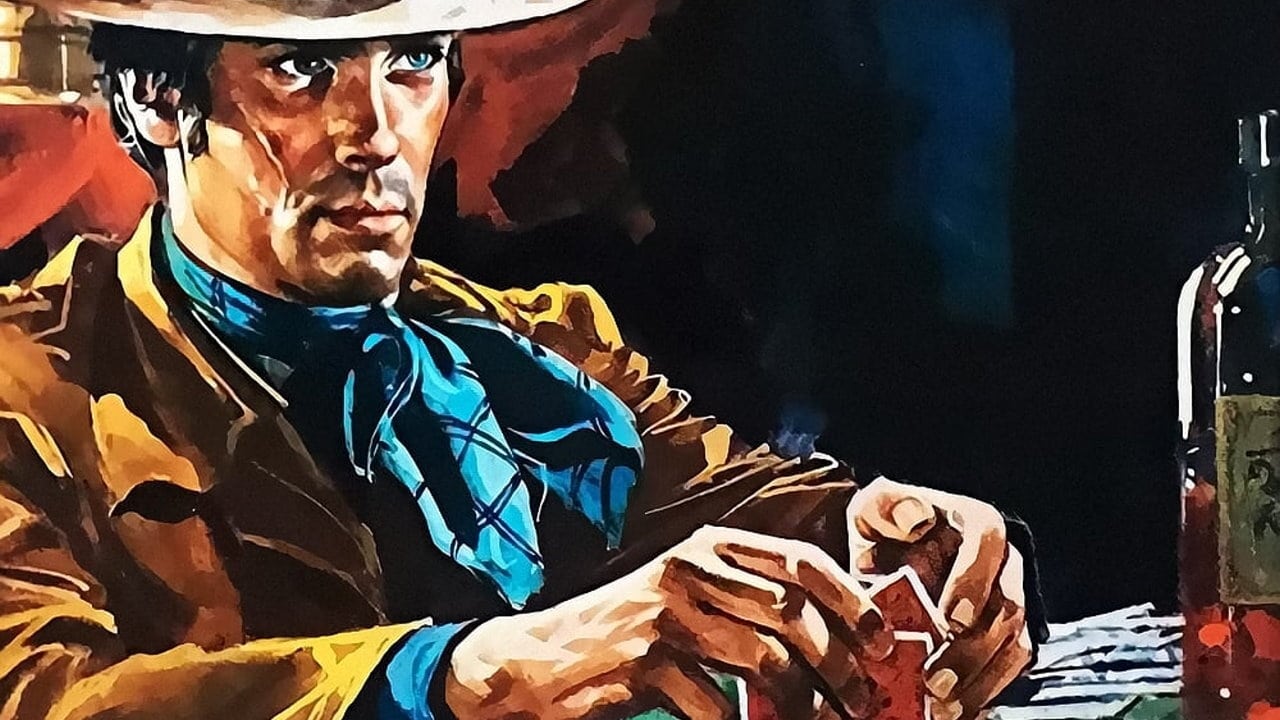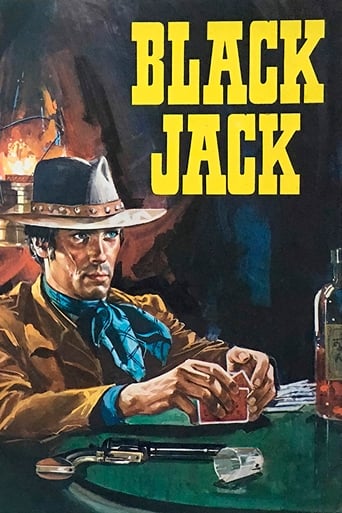AboveDeepBuggy
Some things I liked some I did not.
Comwayon
A Disappointing Continuation
Lollivan
It's the kind of movie you'll want to see a second time with someone who hasn't seen it yet, to remember what it was like to watch it for the first time.
Leofwine_draca
BLACK JACK is a dark, dark example of the spaghetti western, replacing the usual light comedy found in these films with an almost vicious streak of violence which, while not explicit, still hits the mark. No doubt it was made as a result of DJANGO and the writer's efforts to go one step further in delivering a nihilistic storyline.Robert Woods plays an effective character as the leader of a group of thieves pulling off a big robbery. All goes according to plan, until the inevitable 'thieves fall out' aftermath, in which he's betrayed and left for dead by the bad guys, who also rape, murder, and scalp (!) his sister for good measure. Woods survives, albeit in a crippled form, and goes on a mission of vengeance against his former allies, tackling them one at a time.It's a simplistic plot but one that supports a film with a good visual style, including touches of Poe, no less, here and there, especially at the Roger Corman/Poe cycle inspired climax. The violent scenes are well directed and Woods plays a memorable character, dressed all in black and limping difficultly across the screen. BLACK JACK isn't what I'd call a classic, but spaghetti western fans are well advised to seek it out.
Wizard-8
I have found that spaghetti westerns that chose to film in Israel instead of the usual stomping grounds of Spain tend to have some very interesting touches to them even if they don't work overall. But "Black Jack" is one example that works very well for the most part. It is an incredibly dark and bleak spaghetti western in many aspects, not just with the amoral bad guys, but also with a "hero" who doesn't seem to be any better than the men he hunts down in a quest for revenge. The scenes of revenge are very memorable, having violence and brutality that will make viewers wince at least a little. Even when the movie is not showcasing violence or revenge, the atmosphere is dripping with dread, in part due to the dusty and haunting Israeli desert backdrop. Robert Woods acts appropriately mean-spirited for the most part, though he does overact a few times when his character gets into a bout of insane laughter. Another quibble is that the movie takes a long time (almost half of the running time, as a matter of fact) to set everything up before Woods starts on his path of vengeance. And the pacing does remain kind of slow at times in the second half of the movie. Also, it's not made clear how Woods' character manages to track down his former criminal partners. But those minor shortcomings should not prevent spaghetti western fans from enjoying this western. Though considering the REALLY harsh tone of the movie, maybe I should pick a better word than "enjoying".(Note: Watch the movie on YouTube instead of DVD, because as one other IMDb user pointed out earlier, the ending on the DVD has been edited in a way to be pretty incomprehensible.)
JohnWelles
Black Jack (1968), directed by Gianfranco Baldanello, who also made the interesting "This Man Can't Die" (1967) is one of those rare films: A movie where the main-character is a evil and sadistic being who wants total revenge on a group of bandits who double-crossed him over a bank robbery and then tortured him. Jack Murphy, known to his enemy's as "Black Jack" is a completely unlikeable anti-hero who would be the villain in any other movie. The fact that we care what happens is down to Robert Woods astounding performance as Murphy. His role in the picture is crucial: if he is weak, the film is weak. Anything but brilliant will do in a role like this. And he pulls it off with flying colours. Woods is fantastic: He doesn't make Jack a good guy, he makes him so totally horrible that we're strangely fascinated by his actions and fate. The direction, photography and music are all fine, but Robert Woods is the true stand out here.
Bogey Man
Gianfranco Baldinelli's Italian western Black Jack (1968) is hauntingly dark and violent tale of a bank robbery and revenge. A bunch of thieves rob a bank but feel their leader / mastermind Jack divides the money for his own good. This results some sudden bursts of violence and torture as their ways apart, leaving Jack to wait for his payback time. The premise is quite good, as the theme of vengeance has often been exploited in (these) films, making it look something much safer and more positive than it actually is. Margheriti's film Vengeance is interesting but never manages to express anything worthwhile about revenge and its possible results. Hossein's Cemetery Without Crosses has a great potential and characters, but ends up in rather typical and unsatisfying ending, albeit the film being very interesting visually (scripted by Dario Argento).Black Jack has several intense and disturbing moments, and the storytelling is very effective, making the 90 minutes pass incredibly fast. There are some segments of fantastic photography in the desert, some poetic images of irreversible violence (mostly the thickening flame on front of the picture) which all make the film little closer to the masterpiece of spaghetti western, Il grande silenzio by Sergio Corbucci, and from the same year. Black Jack certainly doesn't show violence in a good or positive light (unlike Fulci's Four of the Apocalypse, for example) and it must be said it hasn't lost much of its power during these years. Some "infamous" and "shocking" westerns like Cutthroarts Nine (Joaquim Luis Romero Marchent) seem rather pathetic in front of these much more visual, also mentally violent and effective works of the genre.

